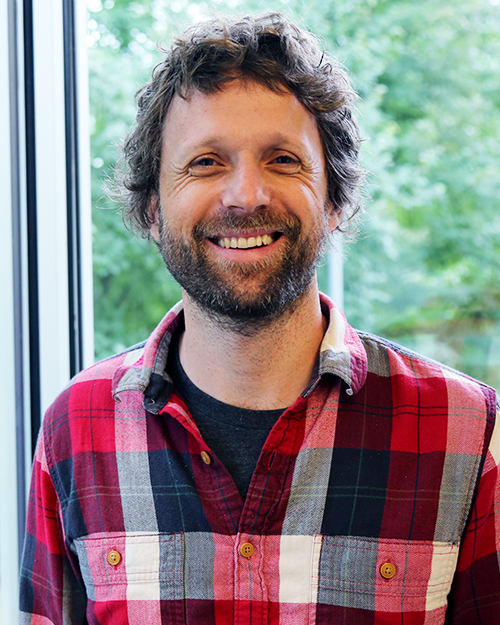
Concentration: Behavioral Health
National Institute on Alcohol Abuse and Alcoholism (NIAAA) Fellow
For Adam Vose-O’Neal, building a career around addiction treatment and research was not a foregone conclusion. As a young research assistant at RAND Corporation, he happened to be placed on two studies that focused on alcohol and drug use--and quickly became fascinated with the field. After RAND, Vose-O’Neal became a licensed clinical social worker, and for the last several years has worked in a clinical practice in Providence, R.I. where he specializes in treating clients with addictions.
Over the years, he’s continued to keep one foot firmly planted in the research world. He says, “I recently worked as a research associate in Providence, studying whether we can predict addiction relapse by analyzing social network dynamics. That really got me interested in the broader question of how people get sober. It also got me thinking about the policies we have--drug policy, treatment policy, criminal justice policy—that can either help people, or get in the way.”
That study stoked a growing interest in conducting his own research, and convinced Vose-O’Neal to look into doctoral programs. At first he looked into social work PhD programs, but ultimately he was drawn to Heller’s focus on social policy. He says, “I want to be a researcher, and to do that in a competent way, and also to be useful to the world. I just really want to do work that is applied, that is related to people's lives. Policy matters.”
Now, Vose-O’Neal is enrolled in the Heller PhD program with a concentration in behavioral health, and is a National Institute on Alcohol Abuse and Alcoholism (NIAAA) Fellow. He continues to treat clients in Providence, and hopes to maintain a clinical practice while pursuing a research career. For his dissertation research, he plans to pursue deeper questions of addiction, sobriety and social networks informed by his experience as a clinician.
“Something that’s come up in my practice is seeing how people get sober. One interesting thing is that they don’t always do it through conventional treatment. I’ve seen clients that disconnect or connect with people in their lives—change jobs, move, start a new relationship, get out of a relationship—and it’s had an impact on their path not just to sobriety, but sustained sobriety. That’s interesting to me. Not just how people get sober, but stay sober.”
“There’s so much about addiction that we don’t know. It’s pretty mysterious,” he says. “I’m taking the research methods class right now, and I’m excited to learn how to break these overwhelmingly big questions down into something manageable, and measurable. Sometimes it seems like the more you learn, the more questions you have, and the deeper you go, the deeper it seems to get. It’s already beginning in these first few weeks. It can be frustrating, but to me it’s also really exciting.”
